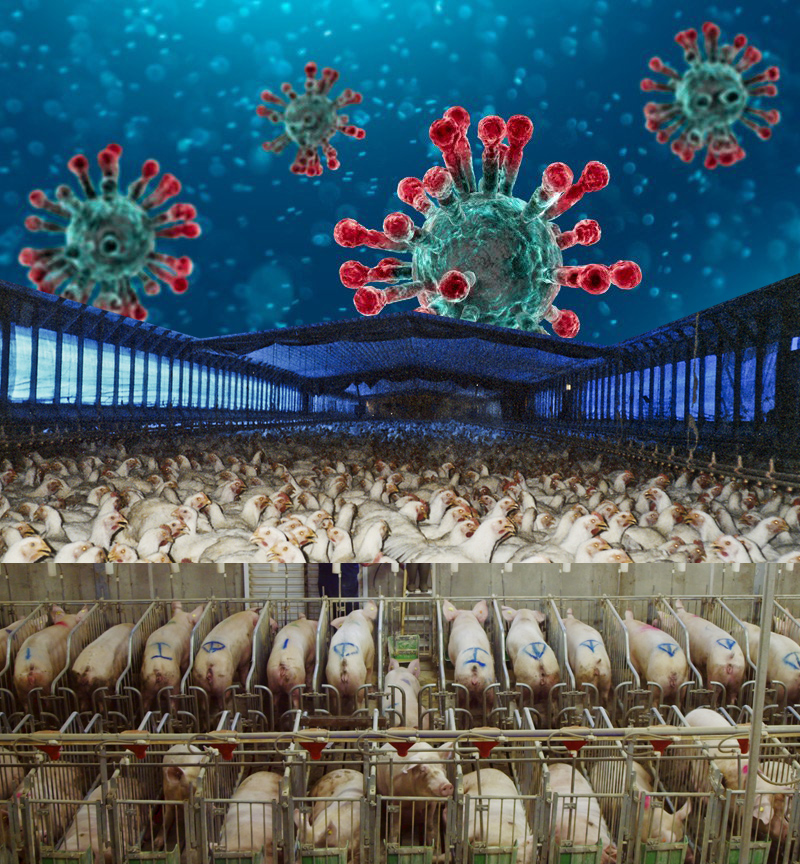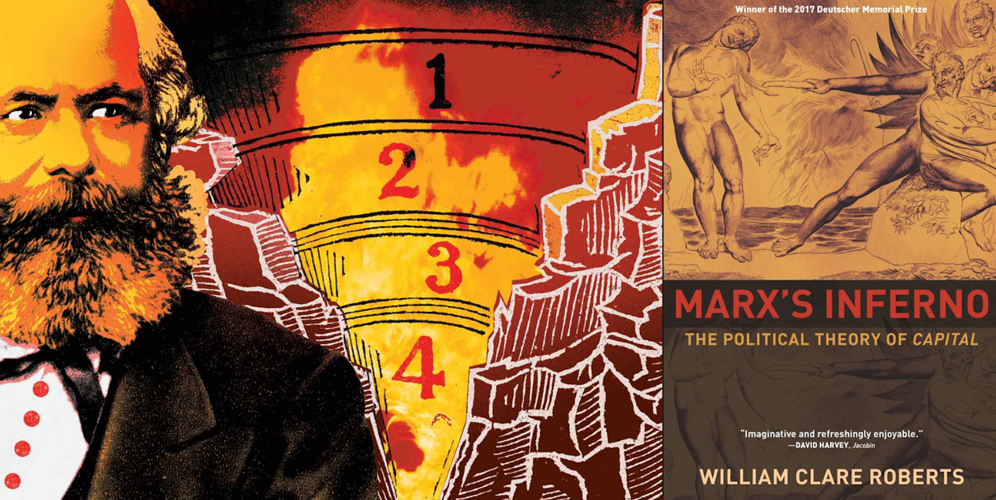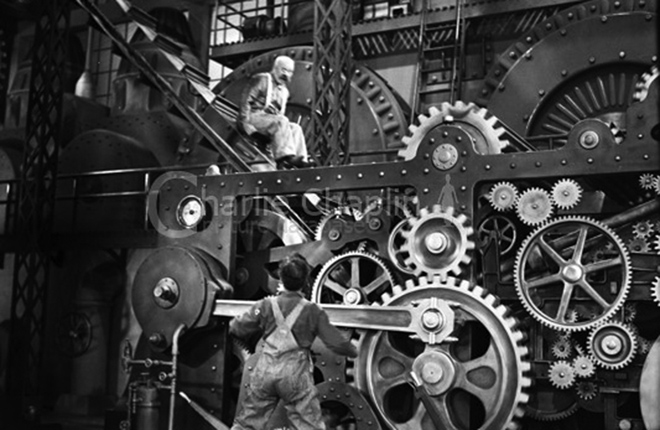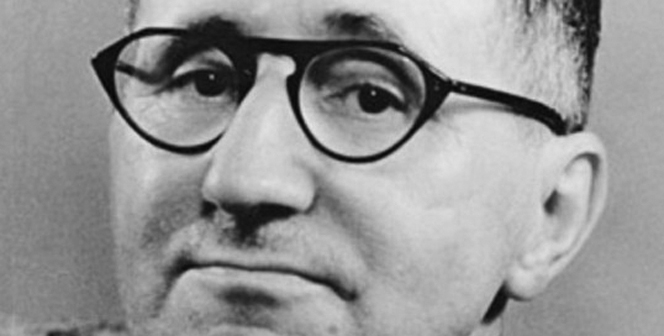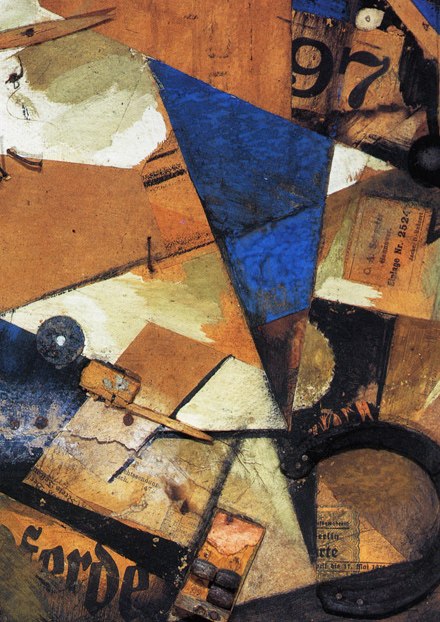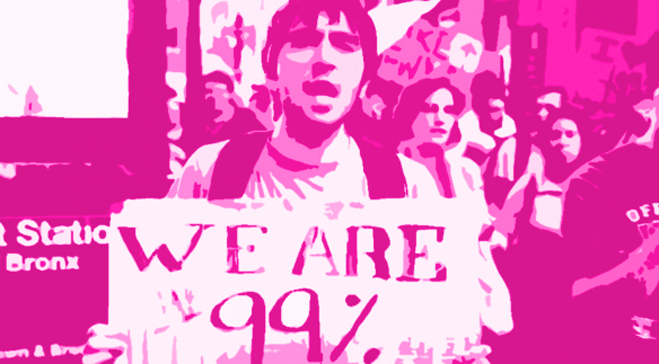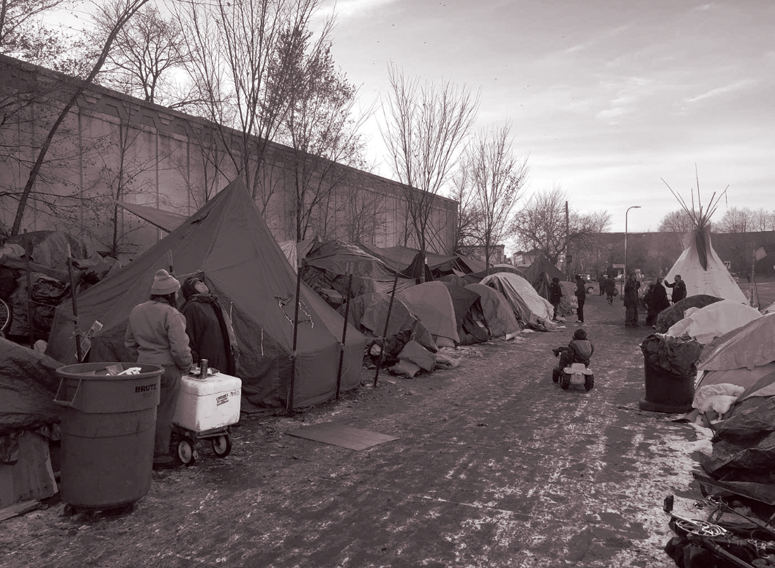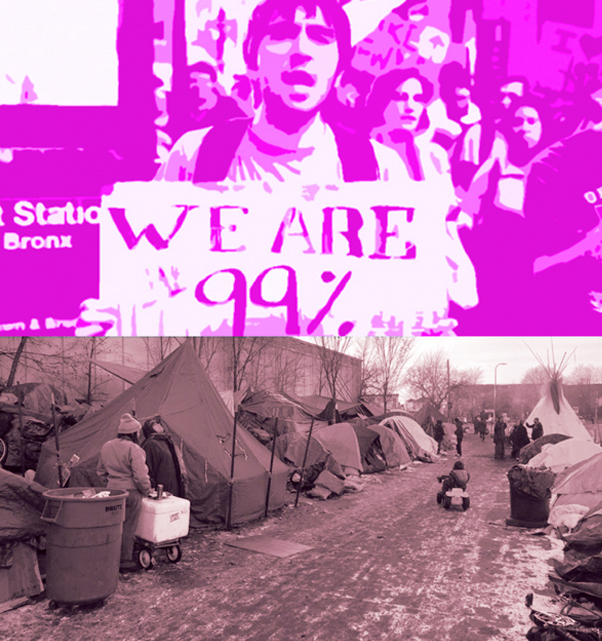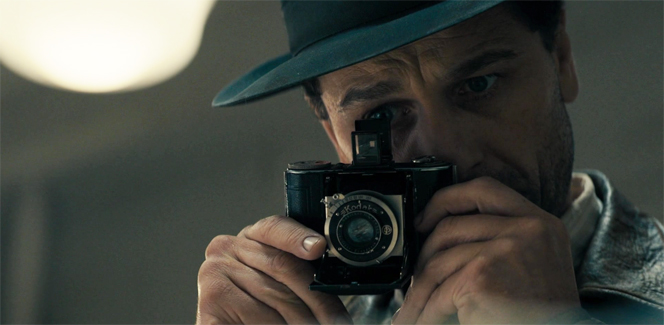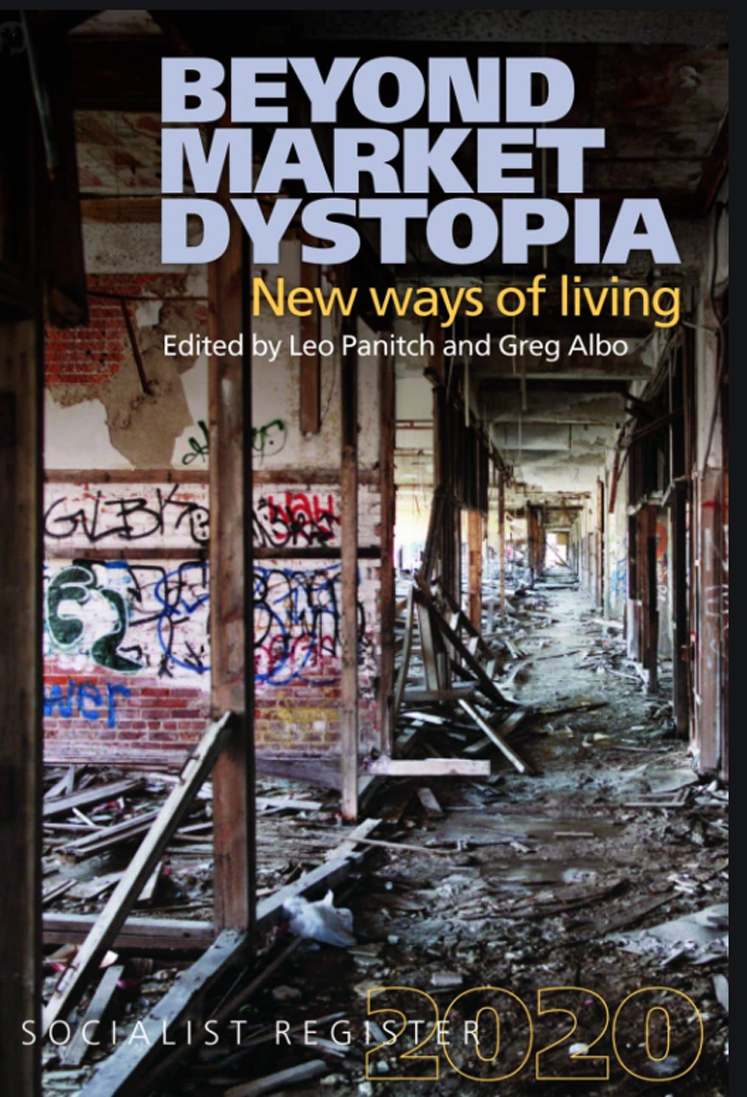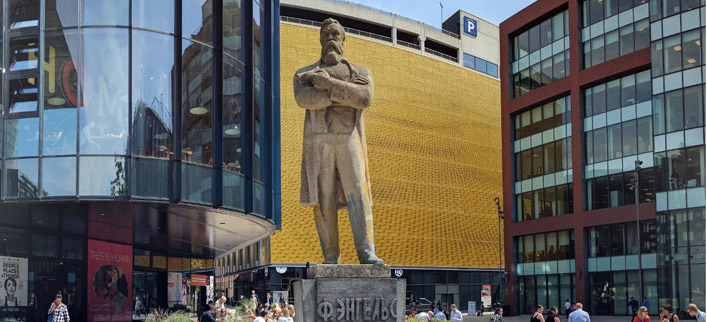Capitalism and Robbery: The Planetary Mine
We will consider how capitalism is rooted in robbery—of the earth, of the water, air, and soil of communities, of the livelihoods of working people. Such theft is becoming more massive in scale and more technologically sophisticated, but is also evoking new forms of popular resistance.
Covid-19 Capitalism: Big Farms Make Big Flu
Online: Zoom link will be provided to registered participantsRob Wallace’s book is an indispensable handbook to the inevitable pandemics stemming from agribusiness. Monthly Review is making it available at a big discount until April 17. We at the MEP are hosting an online reading and discussion group to share the comprehensive research and writing that is contained in Wallace’s book. We will cover all seven sections, plus the two-part update being published in Monthly Review’s next two issues.
Socialism or Barbarism? (and Existential Despair)
New Perspectives Theatre 456-458 West 37th Street, New York, NY, United StatesThe four panelists will address the existential moment we are all navigating in the face of the multiple crises facing us in the light of the multiple tipping points that threaten existence yet are necessary to further accumulate capital. Following presentations from the four panelists, the audience is invited to enlarge the discussion with their own questions and comments.
Descent Into the Inferno: The Politics of Marx’s Capital
Online: Zoom link will be provided to registered participantsMarx’s Inferno, by William Clare Roberts, reconstructs the major arguments of volume I of Karl Marx’s Capital and inaugurates a completely new reading. His argument is that Capital was primarily a careful engagement with the motives and aims of the workers’ movement of the mid-19th century. Understood in this light, Capital emerges as a profound work of political theory. For Roberts, Capital was ingeniously modeled on Dante’s Inferno, with Marx in the role of the proletariat's Virgil guiding us down to the secret depths of capitalism’s “social Hell.”
Final Friday Films: Modern Times
The People's Forum 320 West 37th Street, New York, NY, United StatesBringing back The Tramp to the era of sound in 1936, Chaplin plays an assembly line worker where he is subjected to being force-fed by a malfunctioning "feeding machine" (cutting the vital minutes of lunch) and an accelerating assembly line where he screws nuts at an ever-increasing rate onto pieces of machinery.
6 Plays of Bertolt Brecht
Online: Zoom link will be provided to registered participantsBeginning April 23 we will read aloud six of the many plays Bertolt Brecht wrote between the 1920s and his death in 1956. The six plays are The Threepenny Opera, The Mother, The Exception and The Rule, Mother Courage and Her Children, The Good Person of Szechuan and The Resistable Rise of Arturo Ui. There will be time to read aloud—taking on various characters among ourselves. There will also be substantive discussion of these works which span all the decades of his writing. The Epic theater, musical theater along with the learning plays are represented in this selection of plays. Each session will be conducted via Zoom until we have an all-clear to return to the classroom. With your registration, the zoom password will be sent to you.
Capital, Volume 3, 2nd Sessions
Online: Zoom link will be provided to registered participantsThe study of Volume III is essential to understanding the complex dynamics at work in the present realities we are facing and how these realities are the necessary results of the inner logic of capital. In this moribund stage of late capitalist/imperialist development we see the rise of rentier and finance capital—the introduction of financial instruments being used to make money make more money, jumping over and above the actual real wealth produced by trading on future wealth (derivatives and other forms of fictitious capital); overriding supply and demand as a price mechanism in such necessities as foodstuffs so that their prices continuously rise resulting in more poverty and starvation on a world scale and here in the US; turning new technologies into means of collecting rents—the internet, mobile devices; expropriation of taxes paid by the working class to developers who are often tax exempt while our city and state governments give them tracts of our physical space; commodification of debt; privatization of public spaces, properties and institutions; foreclosures; and the list goes on.
Social Reproduction in the 21st Century
Online: Zoom link will be provided to registered participantsAs capital commodifies and marketizes social reproduction labor and the time squeeze on households is intensified, the contribution to this year’s Socialist Register by Ursula Huws is of highest importance. “Consumption labor does not produce surplus value directly, but is implicated in the externalization of tasks formerly carried out by paid workers and could thus be regarded as contributing indirectly to the exploitation of the labor of productive workers.”
For a Sustainable Future: The Centrality of Public Goods
Online: Zoom link will be provided to registered participantsWe should use every means we can to raise people’s understanding that they are 1) the only basis of real security; 2) should be accessible to all as a right, like universal health care, and hence no one should be excluded by the alleged rights of private property; and 3) are foundational to the most rational way to organize society. Nancy’s presentation will consider some examples of strategies that fit this approach.
What Should Socialism Mean in the 21st Century?
Online: Zoom link will be provided to registered participantsFraser contends that socialism must do more than transform the economy. Over and above that desideratum, it must also transform the economy’s relation to its background conditions, especially non-human nature, the unwaged work of social reproduction, and political power. In a nutshell, a socialism for the 21st century must be ecological, feminist, anti-racist, and democratic.
The Affordable Housing Crisis
Online: Zoom link will be provided to registered participantsThe population in the metropolis is regrouped into ghettos (suburbs, foreigners, factories, students), and the new cities are to some extent reminiscent of colonial cities.’ Yet in these histories we find sedimentations of possibilities that I will take up in this essay.
Beyond Market Dystopia: 2 Events Special Price
Online: Zoom link will be provided to registered participantsThe speakers each wrote an essay in the current Socialist Register of 2020: Beyond Market Dystopia. A number of the essays interrogate central dimensions of how we live and how we might live in terms of educating our children, housing and urbanism, accommodation of refugees and the displaced, and (to lean on that all too common phrase) the competitive time pressures for ‘work-life balance’.
Perry Mason and the Case of the Careless Remake
Online: Zoom link will be provided to registered participantsPerry Mason, the indefatigable defender of hopeless cases that the police have seemingly wrapped up, has been reinvented as a no-account Jake Gittes from Chinatown, a two-bit blackmailer and lost generation PTSD war casualty navigating the streets of 1932 Los Angeles at the height of the depression. Hoovervilles, the Bonus March, and the rich in tuxedos with the poor at their feet form the background of the series and suggest our own era where Trumpvilles flourish and will soon expand when unemployment benefits are exhausted.
Socialist Register 2020: Beyond Market Dystopia
Online: Zoom link will be provided to registered participantsFrom the editors Greg Albo and Leo Panitch: By challenging our contributors to address what are the actual and possible ways of living in this century, we saw this as way of probing how to get beyond the deep contradictions of neoliberal capitalism. We did not want contributors to conceive their remit as future-oriented per se, but rather to see their mandate as locating utopic visions and struggles for alternate ways of living in the dystopic present.
Communism in the Suburbs?/Retroactive Utopia of Socialist City
Online: Zoom link will be provided to registered participantsROGER: The core message here is the need to focus on the small and hidden histories, the buried stories of the everyday, the extinguished but smoldering fires at the grass roots of urban society. OWEN In the center of Manchester, you can find two artefacts of the Soviet Union’s attempt to fuse art, architecture and everyday life. One is now fairly wellknown. Standing in Tony Wilson Square, a developer-owned ‘Private Public Space’ standing in front of the arts center ‘Home’, facing various new luxury office and residential units, is a statue of Friedrich Engels.


